Good day everyone and welcome.
Today I will be discussing the medications that can cause tinnitus (ringing, whistling or roaring noises) in the ears.
Medication is something that I am so used to working with on a daily basis. 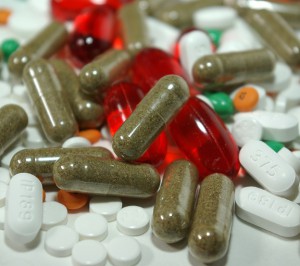 Yet with the introduction of new drugs into the market regularly, there is always the challenge of keeping up with the mechanism of action of these molecules, their dosage forms, indications(i.e. its intended use) and most importantly its potential side effects.
Yet with the introduction of new drugs into the market regularly, there is always the challenge of keeping up with the mechanism of action of these molecules, their dosage forms, indications(i.e. its intended use) and most importantly its potential side effects.
My job as a pharmacist is to offer to you the best advice on how to take your medication, amongst other things.
Whilst some medication tends to work better when taken after meals, others need to be taken on an empty stomach e.g. certain antibiotics.
Certain cholesterol medication must be taken at night. The reason for this is that at night there is less dietary intake and the enzyme that manufactures the cholesterol is active at this time. So by taking the cholesterol medication at night, they work directly on the enzyme and prevent cholesterol synthesis.
Then there are cases where you get interaction amongst medications. They may be synergistic to each other. What I mean by this, is that they work better if they are both taken together.
e.g. Augmentin– this is a combination of Amoxicillin and Clavulanic Acid for common bacterial infections. The Clavulanic acid protects the Amoxcillin from being deactivated by bacteria when introduced into the body. In this way this drug becomes less susceptible to bacterial resistance and is able to destroy the infection.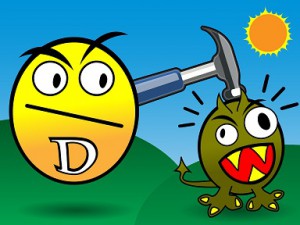
On the flipside, you can get an Antagonistic Combination. These two drugs should not be administered together. They can cancel out each other’s function or worse can cause serious complications in the body.
e.g. Warfarin and Aspirin. Both of these drugs have anticoagulant effects( blood thinning properties). If they are taken together they can thin down the blood to such a point that it can cause significant bleeding. If however, the doctor insists on this combination, then constant monitoring of the INR(International normalised ratio), must be done to keep warfarin levels in check.
An antibiotic like Flagyl(Metronidazole), should not be taken with any alcohol whatsoever, even if it’s a cough syrup that contains alcohol as a preservative. Why? It causes a disulfiram like reaction in the body, which means it causes nausea, vomiting and flushing in the body.
My job is to analyse your prescription and look for any potential interactions that may be present and explain to you the safest way to take the medication. It is also my duty to make you aware of any possible side effects that you may experience.
What are Side Effects?
A side effect according to Wikipedia, is defined as ‘an effect whether it is therapeutic or adverse, that is secondary to the one intended’ of the drug in question.
What this essentially means is that for instance, if a drug’s purpose is to help with sleep or relaxing of muscles and it ends up giving you a dry mouth then dry mouth is what we call a side effect.
What is Ototoxicity?
This is whereby a drug displays a side effect that is toxic to the ear. Usually the inner ear(cochlea or auditory nerve is affected).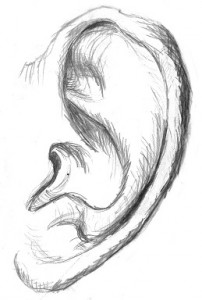
The ototoxic effect of the drug may be temporary and reversible or permanent and irreversible.
They may cause a sensorineural hearing loss as a result.
Signs of ototoxicity, includes tinnitus, feeling of fullness in the ears, vertigo and hearing loss.
Let us take a look at some medication in particular that are thought to cause tinnitus.
1.Aspirin
Also known as ASA(Acetylsalicylic Acid), is part of a group of anti-inflammatories called the NSAID’s(Non-Steroidal Anti-Inflammatory Drugs).
It follows a different pathway compared to other NSAID’s such as Voltaren, Advil or Celebrex, and may not be as strong an anti-inflammatory as the others mentioned.
The primary action of this drug is to
- Reduce Fever
- Relive pain in mild conditions such as toothaches, and headaches.
- Reduce inflammatory conditions
- Blood Thinner– by preventing blood clots, aspirin taken in low doses, helps to prevent incidences of strokes and heart attacks.
In my professional opinion, I think high doses of this drug(about 12 tablets a day), has the potential of bringing about tinnitus. Discontinuing this medication, will reverse the tinnitus.
An interesting story
I read a very interesting story about a 60 year old man who was admitted to hospital for the treatment of ischaemic heart disease. The relevant treatment helped with the main condition, but then he started complaining of persistent tinnitus. This was strange, so an investigation followed.
After an examination of his ear, a foreign body was found to be lodged in his external auditory canal. This foreign body was identified to be half a tablet of a standard 250mg aspirin, that accidentally fell onto the pillow and somehow found its way into his ear bringing about the tinnitus.
The tinnitus was gone after the tablet was removed from his ear.
Other NSAID’S that are worth the mention, include Ibuprofen(Advil, Nurofen) and Naproxen(Aleve).
Ibuprofen is the more common one indicated for period pain, headache and inflammation. It is common to find it in combination with paracetamol and codeine (Myprodol).
I personally think that like aspirin, these drugs as well, has the potential to cause tinnitus, if taken in exceptionally high doses and over a long period of time.
I think that 200mg of Ibuprofen twice a day should be fine.
2.Blood Pressure and Heart medication.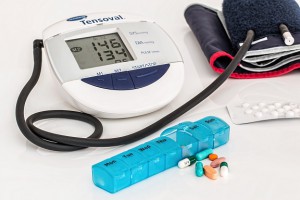
I have explained the function of diuretics on the kidney in my previous article, see What is Meniere’s Disease? These drugs help to lower the blood pressure by decreasing the fluid build-up in the body.
Once again, the ototoxic profile of these drugs are low and pose a problem only in significantly high doses or when combined with other ototoxic drugs. The ototoxic side effects are more commonly seen when given intravenously rather than, when taken in orally.
e.g. Lasix(Furosemide) and Bumetanide(Bumex).
The class called beta-blockers e.g. Atenolol and Propanolol, are reported to cause tinnitus as well.
3.Anti-Malarial Drugs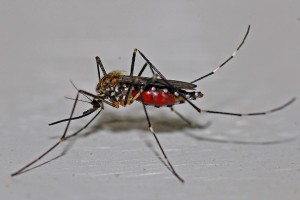
e.g. Chloroquine(Plasmoquine) and Quinine
They act as anti-malarial agents as well as muscle relaxants and help to relieve cramps.
Like aspirin, the tinnitus effects are reversible upon discontinuing therapy.
4.Cytotoxic Drugs
These are drugs that are used for the treatment of cancers. The ototoxic effect of these drugs are increased when combined with the loop diuretics or anti-malarial preparations.
It is essential for the doctor to advise the patient of this side effect and regular hearing tests must be done. Mainly to monitor the hearing and to watch for any deterioration or signs of hearing loss.
e.g. Cisplatin(contains platinium)Platinol and VinCrinstine.
5.Aminoglycoside Antibiotics
This class of antibiotics, is not given via the oral route. They are given intravenously and are strictly reserved for severe life-threatening infections.
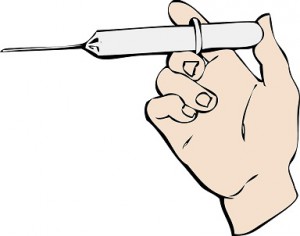
Levels of these drugs are very closely monitored. If complications such as kidney failure is present, then elimination of the drug will be much slower thereby causing drug blood levels to rise. The longer the drug stays in the body, the more time it has to inflict damage to the inner ear resulting in tinnitus.
Examples of drugs in this class are Gentamicin and Neomycin.
6.Antidepressants
The two classes of antidepressants that can cause or worsen tinnitus are the tri-cyclic antidepressants and the SSRI(Selective Serotonin Re-uptake inhibitors).
Trepiline(Amitriptyline)- Tricylic
Prozac(Fluoxetine), Paxil(Paroxtine) and Zoloft(Sertraline)- SSRI
More Information
These are some of the medications that can cause tinnitus and certainly the ones for you to be on the look out for.
Should you be interested in learning more about drugs with ototoxic effects, check out the following book titled
Ototoxic Drugs Exposed : The shocking truth about prescription drugs,medications,chemicals and herbs that can(and do) damage to our ears.
This highly comprehensive book features 800 Pages documenting medications, herbs and chemicals that are ototoxic. This books reveals the factors that puts your ears at higher risk and explains how you can help reduce this risk and protect your ears.
Things to watch out for
Just a couple of things that I think is necessary for me to point out,
- We are all different: Each of us responds differently to the same thing. You may get a side effect to amoxicillin whilst it may not affect me at all. The same can be said about tinnitus and these medications, the intensity will vary from one person to the next.
- Age: Elderly people or the very young may be more sensitive to a drug.
- Stress: Most of these medications are indicated for a condition. The condition itself invokes some sort of stress on the individual. As I mentioned before, stress if not properly handled can aggravate tinnitus. My point here is that the stress related to the illness may be responsible for the tinnitus and not the drug itself.
- Generalised Side Effects: Even though, I have listed these medications as a potential to cause tinnitus, they may NOT cause any ringing at all.
⇒There is a very interesting relationship between our brain and tinnitus. Read Tinnitus and the Brain, to learn more⇐
Conclusion
If after having taking these medications, you may experience tinnitus and if it gets unbearable, then you must notify your doctor so that he can advise you of an alternate medication.
There are natural alternatives to some of the medications above. I will be dedicating a post for these medications later on. So please watch out for it.
I hope that you have enjoyed this article on the medications that can cause tinnitus. Have you experienced tinnitus with any other medication that is not mentioned above? If so,what is the name of it and what did you do?
Please share this article with anyone else who you think may benefit from reading this.
Thanks for stopping by, you have been great.
All the best to you.
Roopesh

Thanks for the heads up on these medications. I think many people don’t realise that often pharmaceuticals have adverse side effects. I will keep those ones noted for future reference. Have you experienced any of this yourself?? Thankfully I have never had any of these issues. Thanks for the article.
Hi Rob
Personally, with the Grace of the Almighty, I did not have the need to take any of these medications.
There was a time though that I was on a course of Beta blockers by the name of propranolol that I tried for the anxiety associated with tinnitus. It did help with the anxiety, but it did not aggravate my tinnitus.
As I had mentioned, as long as the dosage is not exceedingly high, it should not be a problem
Thanks for stopping by.
Regards
Roopes
Hey, thanks for the thorough article on medication. My friend always take antibiotic and sometimes will take a couple of beer thereafter. And he always tell me that it is ok. Well, I wouldn’t know as I do not take medicine! Guess I need to show him this article so that he would not repeat this again. Hope to learn more from you.
Hi Florence
You are Welcome
It sounds to me that the combination is not causing any problems so far.If there is a sign of ringing, or whistling or anyunusual noises in the ear after taking alcohol or antibiotics, then there is cause for concern.Then he should consider appropriate action.
Show him the article anyway, so that it is at the back of his mind.
I will be writing much more over the course of time, so please do stop by.
Everything of the best.
Regards
Roopesh
Hello, Rupesh.
OH my God, after reading your article is looking like nothing is safe here. Is looking like pharmacies just trying to rip off the customers with medication which actually harm you instead benefit to your health.
I will definitely will have a look on book offer, i think is useful to know.
Thank you
Hi Niki
Please, please , I beg of you do not panic.Before you run off to buy any book, know this.
This is a guide of the medications that CAN cause tinnitus. As I mentioned, some of them occur in high doses and if given only by injection.You might not even react to any of them.
So my point here, is, if you have to take the medication, just be aware of its potential to cause tinnitus.If you do notice ringing noises then get it checked out.
Hope this makes things clearer.
Let me know if I can assist with anything else.
Take Care
Roopes
Hi Roopesh I found your article to be quite interesting. I was totally unaware that medication could cause tinnitus. I suffer from tinnitus but I worked in a loud factory for thirty years. Although I wore ear protection every day I still ended up with tinnitus. I have been retired now for almost 10 years and my hearing over time has improved. I guess getting out of the noisy environment would be similar to stop taking medication. They both seem to improve your hearing.
Hi Maureen
Thank you for sharing with us your story.
Glad to hear that your hearing improved over time.So it sounds to me that tinnitus is not bothering you as much.Guess you are really fortunate, I am very happy for you.
This means that the ear protection certainly helped in protecting you from the loud noisy environment at your work
Extreme loud noise would have caused permanent damage to the inner ear and cause hearing loss and aggravating tinnitus which thank god, is not your case.
Thanks for stopping by.
Roopesh
I know that medicine was created to help people and solve their health problems, but seems these days that all drugs have crazy side effects.
Thanks for informing me about some side effects of some commonly used medicine.
Crazy to think some of things a simple Aspirin pill can cause.
Hi Brok
Thank you for your comment.
Yes, even the most common of medications can have a nasty side effectEspecially, if they are taken in higher doses.
Glad that this article had helped you in some way.
Thank you for stopping by.
All the best to you.
Roopesh
Hi Roopesh,
This is quite an interesting article. I sometimes get a ringing in my ears but taking something like aspirin seems to make it go away. It is scary to think, however, that that medication may actually create a ringing in my ears or possibly hearing loss. I try not to take too much aspirin, or other drugs, and just tough it out when I have a headache. Now I guess I have another reason to think again before getting the medicine.
Hi Jessica
Thank you so much for sharing.
I guess that you are taking a relatively low dose, for the tinnitus not to get aggravated or worsen.
It is actually interesting that you find relief after having taken the aspirin. I am glad that at least something works for you and that you have found a way of dealing with your tinnitus.
Taking too much medication can certainly cause havoc in the body with regards to side effects. It’s good to know that you are not taking too much of these drugs.
If there is anything else, that I can assist with, please let me know.
With the warmest regards and best wishes
Roopesh
I am very happy I came upon your post. I suffer from ringing in my ears almost constantly. I simply thought it was my age. I asked several people about their ears and if they experience any ringing in their ears, and many of them actually said yes! I was so surprised at the amount of people suffering from this. I am going to begin paying more attention to how much aspirin I take during any given day. Your article made me realize that I may be having a reaction to aspirin. I know I don’t take much but it could very well be causing the ringing.
Do you think tinnitus can go away on its own?
Hi Meherbani
Glad to have you here.
Tinnitus is very common, affecting around 10-15% of the American Population.
There are various causes to tinnitus. Loud noise, damage to head, viral infections or Meniere’s Disease and certain medications as well.
Having said that, aspirin can cause tinnitus in high doses i.e.if you are taking a sufficient amount.
As you mentioned, you are not taking much, so perhaps to stop and see what happens would be a good avenue to take.
I am a tinnitus sufferer. I can personally tell you that my tinnitus has not gone away. But the intensity has lessened down to what it was before.
I still struggle but have found ways, techniques and lifestyle modifications to handle the tinnitus. All of these things I have mentioned here on this site.
So please, feel free and roam around. You may find a thing or two that can help you with your tinnitus.
Everything of the best.
Roopesh
Hey Roopesh! This article here is absolute gold. There are actually so many different and very common medications that can cause tinnitus. I do not believe I have had much experience with tinnitus, but have reading your article I will now know if I ever have tinnitus. Thank you. Overall, this article was an awesome read and I hope you have a great day. Have you had any experience with tinnitus?
Hi Michael
Wow!! Thank you for that awesome compliment. Appreciate it big time.
Yes, these medications have the potential to cause Tinnitus. Having said that, we all respond differently to the side effects towards the same medications. So some people may be more prone than others to getting tinnitus from these meds.
I am a tinnitus sufferer and am completely deaf in my right ear. If you would like to read more please do more check out my story on the ‘About Me,’ page.
I really would like to do my very best in helping tinnitus sufferers out there and that’s the primary reason as to why I have built this website.
I hope you have a great day as well.
Regards
Roopesh
Hi Roopesh,
I really enjoyed your post and didn’t realize there were so many medications that can cause tinnitus. I’ve been experiencing a little myself, but I think I might attribute that to my 20’s playing in a band.
But it’s good to know about aspirin, ibuprofen, and anti-depressants can play a roll.
And of course you mention stress, is there anything that stress can’t make worse.
Great post,
Todd
Hi Todd
Glad that you enjoyed the article.
These medications in exceptional doses would likely cause tinnitus as a side effect.That too, would depend on how susceptible one is to these medications.
As you said, you were part of a rock band.This can certainly cause tinnitus, depending on how intense the exposure as well as duration was to the sound.
You right aboutstress, if uncontrolled can cause havoc in a lot of areas in our lives.
Take Care of yourself.
Regards
Roopesh
Great article
I had no clue that aspirin and ibuprofen could cause tinnitus. I have experience tinnitus before and I can say that it is not pleasant. A constant ringing in your ear for hours on end can be very stressful. Thanks a ton for the article it was very informative and Ill be sure to revisit this site fore more information!
Hi Dyl
Yes, it depends on your susceptibility to these medications as well as the amount of drug intake that would cause a certain degree o tinnitus.
And I certainly agree with you that it is really not a pleasant thing to experience.
Thanks for stopping by.
Hope to hear from you again.
Regards
Roopesh
I did not know these medicines would work for tinitus. Thanks for that information. A family member of mine deals with this. Now I think since a year or so. Does not know why or how it suddenly arised. But it sure is a pain in the ass to deal with. Great you are doing this, keep up the good work and share your content. thanks
Hi Maurice
Yes, Tinnitus is a challenge, to say the least to deal with.
Thanks for the uplifting words of encouragement.
Makes me feel like I am on the right path.
Thanks and Take Care
Roopesh
It seems like every day more problems are arising due to medications and prescription drugs. I can’t help but wonder how many of them are hurting things much more than they’re helping! Its almost impossible to find one without side effects and they numb your mind so that you have a hard time thinking and processing things.
I myself have always preferred to avoid prescriptions unless they’re absolutely necessary!
Hi There
Thanks for the comment.
Though I am a pharmacist, I must agree with you on this point.That medications, most of them offer side effects, some of them are mild whilst others are severe.
I respect your decision to avoid medication, unless it is absolutely needed.
Thanks and Take Care
Roopesh
hi Roopesh,
great article wish i had seen it before seeinng the doctor or taking medications.
i have a suspected perforated left ear which caused no issues for about 2 months except to loud noises which i avoided or wore protection. not sure of the cause, sudden loud source or a puncture from cleaning or in ear headphones.
i decided to finally see a doctor about it when i was put on amoxycillin and clav as well as nasonex spray. after 5 days of treatment i had a sudden on set of tinnitus in both ears and have had it for the last 2 or so weeks.
im not sure if this is coincidence. but im now reluctant to take any more antibiotics or nasonex incase it was the cause of the tinnitus.
im assuming that medication induced tinnitus doesnt go away?
im also worried that if i dont take them further damage could be done.
Hi Thomas
I hear exactly where you are coming from. The Nasonex is a cortisone spray and that helps to clear the inflammation within the nasal passages. The Amoxycillin is the antibiotic, to kill the infection.
I have personally tried this combination and found it to actually help my tinnitus, to some extent. As is the case, we all respond differently, so it is possible that yours may be aggravated by the meds. Remember something else, the more we give it the attention, the more it gets louder. I know its easier said than done, but try not to focus on it.
I would definitely recommend for you to check with your ENT, just to be on the safe side. I pray for your tinnitus to go away.
All the best
Roopesh
Hi Roopesh
I am a 63 year old women and as I went into the menopause at 52 I developed High Blood pressure also being a migraine sufferer since 14 I was put on Atenonol which I understand is good for migraine and blood pressureit and it worked well. But for the last few years I have been suffering with Tinnitus it is loud and I try not to draw attention to it talk about it or make a fuss as that seems to keep it more under control. I have a ticking clock open the window etc but it seems to be getting worse and I am worried that the tablets are affecting my ears what should I do.
Thanks Janet
Hi Janet
Atenolol is a beta-blocker. It helps to regulate your heartbeat, and its own way, it will help with your blood pressure.It is hard to say what is actually the cause of your tinnitus. It could be the medication or could be as a result of other factors such as diet, stress, aging, etc
I see that you have tried using masking strategies such as clocks and external noise. Has the tinnitus come to a point of interfering with your hearing ability? I mean does it interfere with your conversations with people?
I think it would be advisable for you to have a chat with the doctor that prescribed the BP medication. If the tinnitus is affecting with your lifestyle, then I would also contact an audiologist.
Let me know how it goes.
Regards and Take Care
Roopesh
I took 5mg of propalonolol once 3 days ago and my tinnitus has gotten worse 🙁 I’ve had tinnitus for 3 months now and was looking for something to combat the anxiety. It’s such a small dose how is this even possible?
Hey Peter
Sorry for the late reply. I hope that you are doing okay today. Sometimes it all depends on how our body responds to these medications. It may spike my tinnitus and may not do the same to you or vice versa. Sorry to hear about your tinnitus.
Please let me know how things are going now?
Regards
Roopesh
This may seem like a silly question ..you say aspirin in high doses may cause tinnitus…I have been on 6 mg of warfarin for over 16 years now. About 2 months ago the ringing started and seems to be worse in the morning and at night. I have never been around loud noise and I have had no head trauma. I’m 56 and this ringing is very frustrating could the warfarin be doing this?
There is no silly question. Actually its a very interesting question. I think that there could be the possibility that Warfarin may be causing some havoc.When it comes to medication, I believe that we all may react differently to them.
Having said that, I think it is possible. If it does get worse, then I would recommend that you have a chat with your doctor.
Regards and Take Care
Roopesh
Hi, I’m a bit confused about Augmentin. Do you mean that Amoxicillin and Clavulanic Acid are antagonist and should not be taken together? And also, is Clavulanic Acid safe for a tinnitus afflicted individual? Thank you very much.
Hi there
No they both work together or complement each other. The clavulanic acid portion protects the Amoxicillin and allows it to do the job in th ebody.
Hope that this makes sense?
Regards
Roopesh
I have tinnitus. The sounds in my head are very loud. It seemed to have started many years ago when I took Chloroquine for nearly two months when I took a trip to Africa. I used to notice that it was worse if I took aspirin. I now take Atenolol and Htz for blood pressure, and Plavix since a heart stent. Perhaps these contribute to my tinnitus. I am 82 and have hearing loss in my right ear. I have not been to an audiologist.
I found your article very interesting. I would love to at least reduce the noise level, but I wonder it that is possible.
You are most welcome. I am glad that this article has helped you out.
I think that it is possible to reduce the noise levels. I am completely deaf in my right ear. I have no choice but to use a hearing aid, and find that it does mask away the noise.
I think it might be a good idea, to visit an audiologist.
Please let me know how it goes
Regards
Roopesh